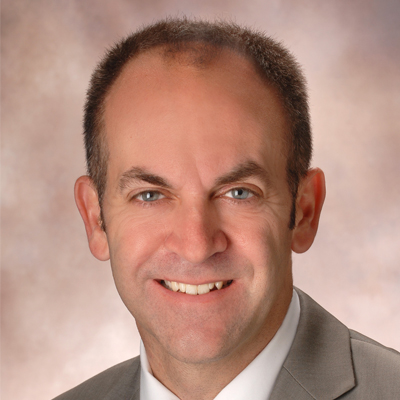Solving how labor begins to develop better therapies to prevent preterm birth
Perhaps the biggest problems facing pregnant women is preterm labor and delivering their pregnancy too early, which is the leading cause of infant death and illness in the U.S. and many other nations. Despite a significant amount of research in this area, there are more preterm births in the U.S. than there were 25 years ago, and much remain unknown about the mechanisms of labor. Dr. Todd Rosen, Director of Maternal-Fetal Medicine, and his team at Robert Wood Johnson Medical School of Rutgers University, aim to elucidate the mechanisms that drive the clock that determines the length of normal labor. Understanding why women enter labor is not only a fundamental question of biology that is poorly understood, but decoding the clock that governs the length of pregnancy will give us additional therapeutic targets to prevent preterm birth and enable researchers to reduce the number of babies born prematurely and lower the incidence of death and disability in this vulnerable population.
Although there are interventions currently available that will help reduce the risk that preterm babies face, options to prevent preterm birth are limited. An obstetrician and Maternal-Fetal Medicine specialist with a unique engineering background, Dr. Rosen collaborates with Dr. Bingbing Wang and his translational lab to take a systematic approach to the clinical problem, studying placentas obtained after women deliver and exposing them to a variety of conditions to understand regulation of genes and proteins which have been identified to play a role in the timing of the onset of labor. Currently, Dr. Rosen and team believe to have figured out how the placenta controls the length of pregnancy -- now being recognized by the prestigious peer-reviewed scientific journal Science Signaling -- and are looking to test through animal experiments if these pathways they have identified can be inhibited and prolong pregnancy. Ultimately, Dr. Rosen hopes that research breakthroughs in understanding the placenta will help reduce the number of preterm births, which would reduce the number of children who have disabilities or die as a result of premature delivery.
Current research includes:
- Understanding Mechanisms of Labor: The placenta’s job is to feed and oxygenate the fetus, and release placental stress that signals delivery when the baby gets too big. Dr. Rosen and team are exploring this concept further, to determine if the fetus signals the placenta as a final step that ultimately triggers labor. They have already identified a novel pathway where cortisol produced by the fetus turns on a transcription factor called NFKB at the end of pregnancy, which in turn activates the gene that produces corticotropin-releasing hormone (CRH) and other "pro-labor" genes. The team have also identified how at least two pro-labor genes are turned on in the placenta via an epigenetic switch. An active area of investigation in his lab out how progesterone, the pregnancy maintenance hormone, is withdrawn at the molecular level to initiate labor.
- Inhibiting Pathways: Since NFKB is thought to play a central role in the regulation of the placental clock, inhibiting the enzymes which activate NFKB could slow or even stop the clock and prevent preterm birth. Dr. Rosen and team have recently completed a drug screening study and identified several candidate drugs which inhibit two of the key enzymes that are essential in activating the non-canonical NFKB pathway. To test efficacy, Dr. Rosen plans to work with rhesus monkeys, who might have a similar clock mechanism, to see if pregnancy can be prolonged with the two drugs his lab has identified. He also plans to inhibit the clock in another way using single-stranded small interfering RNAs and promote labor by stimulating the non-canonical pathway.
- Studying the Placenta Transcriptome: Dr. Rosen’s lab is running studies on the placenta transcriptome to understand and characterize gene expression and how it changes over the course of pregnancy.

Bio
Dr. Todd Rosen is a clinician researcher who specializes in the care of high risk pregnancies. Because treatment to prevent preterm labor and delivery is ineffective in most women, Dr. Rosen and his lab are trying to understand the mechanisms that drive the clock that determines the length of normal labor. Graduated from the New Jersey Medical School in 1992, he specializes in Obstetrics & Gynecology and Maternal-Fetal Medicine at Rutgers Robert Wood Johnson University Hospital.
Although he has always wanted to be a doctor, Dr. Rosen holds a B.S. from Rutgers University in Biomedical and Electrical Engineering as per his father’s desire. Holding fast onto his dreams though, as an undergraduate he took all the prerequisite classes for pre med and proved himself capable of both engineering and medicine. In his third year of medical school he discovered that he particularly enjoyed OB/GYN, and a subfield within OB/GYN called Maternal-Fetal Medicine. Since then, he has worked with women with the most complicated pregnancies, teaching and conducting research in this area.
Dr. Rosen is a clinician first, and he is passionate about trying to give his patients the best possible outcome to their pregnancies. He is just just as passionate about his research. Studying the placental mechanisms of birth in a unique perspective of an engineer, Dr. Rosen ultimately hopes to contribute to a new treatment for preterm labor to reduce the number of preterm births that seriously affect both the mother and the child.
For more information, visit http://umg.rwjms.rutgers.edu/Public/directory/doctor2.asp?doctor=911890160
In the News
Science Signaling
Science Signaling
Publications
Awards
Excellence in Teaching Award for Education of Medical Students, 2015
Rutgers Robert Wood Johnson Medical School
Chairman’s Teaching Award for Education of Residents, 2010, 2011, 2012, 2014
Rutgers Robert Wood Johnson Medical School
APGO Excellence in Teaching Award, 2008
Columbia University
Diplomate of American Board of Obstetrics and Gynecology in Maternal-Fetal Medicine, 2001
Gordon W. Douglas Faculty Teaching Award, 1998-1999
New York University Medical School


